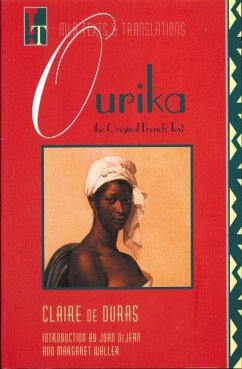Based on a True Story, Ourika relates the experiences of a Senegalese girl who is rescued from slavery and raised by an aristocratic French family during the French Revolution. Brought up in a household of learning and privilege, she is unaware of her difference until she overhears a conversation that makes her suddenly conscious of her race - and of the prejudice it arouses. From this point on, Ourika lives her life not as a French woman but as a black woman "cut off from the entire human race". As the Reign of Terror threatens her and her adoptive family, Ourika struggles with her unusual position as an educated African woman in eighteenth-century Europe. A best-seller in the 1820s, Ourika captured the attention of Duras's peers, including Stendhal, and became the subject of four contemporary plays. The work represents a number of firsts: the first novel set in Europe to have a black heroine, the first French literary work narrated by a black female protagonist, and, as John Fowles points out in the foreword to his translation, "the first serious attempt by a white novelist to enter a black mind". An inspiration for Fowles's acclaimed novel The French Lieutenant's Woman, Ourika will astonish and haunt modern readers.







